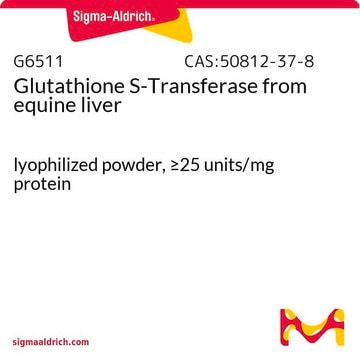34025
Dibromobimane
BioReagent, suitable for fluorescence, ≥95.0% (CHN)
About This Item
Recommended Products
product line
BioReagent
Quality Level
Assay
≥95.0% (CHN)
mp
170-172 °C (lit.)
solubility
DMF: soluble
acetonitrile: soluble
chloroform: soluble
fluorescence
λex 391 nm in methanol
λex 393 nm; λem 477 nm in 0.1 M Tris pH 7.0, gutathione red
suitability
suitable for fluorescence
storage temp.
2-8°C
SMILES string
CC1=C(CBr)N2N(C1=O)C(=O)C(C)=C2CBr
InChI
1S/C10H10Br2N2O2/c1-5-7(3-11)13-8(4-12)6(2)10(16)14(13)9(5)15/h3-4H2,1-2H3
InChI key
OSIYFMVMZXJKSP-UHFFFAOYSA-N
Application
Packaging
Other Notes
Not finding the right product?
Try our Product Selector Tool.
Signal Word
Warning
Hazard Statements
Precautionary Statements
Hazard Classifications
Eye Irrit. 2 - Skin Irrit. 2 - STOT SE 3
Target Organs
Respiratory system
Storage Class Code
11 - Combustible Solids
WGK
WGK 3
Flash Point(F)
Not applicable
Flash Point(C)
Not applicable
Personal Protective Equipment
Choose from one of the most recent versions:
Already Own This Product?
Find documentation for the products that you have recently purchased in the Document Library.
Our team of scientists has experience in all areas of research including Life Science, Material Science, Chemical Synthesis, Chromatography, Analytical and many others.
Contact Technical Service








